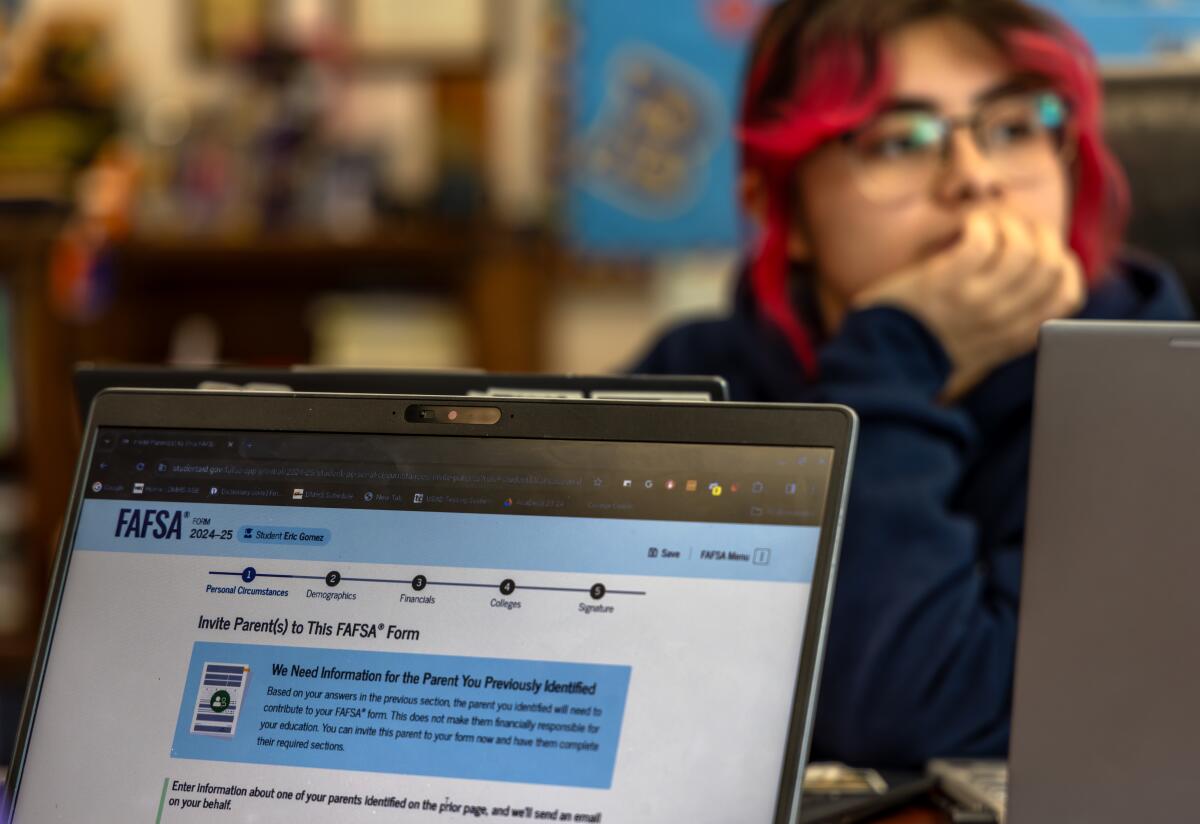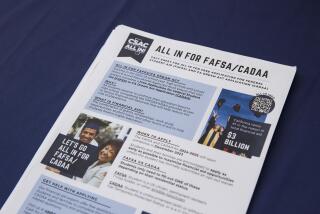Caught up in the FAFSA chaos? Some students now have a workaround

- Share via
There’s a new workaround for some college applicants who have been stymied by the chaotic rollout of the newly designed federal student aid form.
The FAFSA, or Free Application for Federal Student Aid, is all-important for many students looking to afford college. The aim of the U.S. Department of Education in overhauling the process was to make it simpler, but the new system was beset by delays and glitches. Among those hit hardest were low-income families with a parent or student who lacks a Social Security number.
But on Tuesday, the California Student Aid Commission provided welcome news, announcing it would offer an alternative financial aid application option for students who are U.S. citizens but have at least one parent without a Social Security number.
These students can use the California Dream Act Application to apply for financial aid to attend a UC, Cal State or California community college.
Although the Department of Education said these issues had been fixed for students from families that include immigrants, some have continued to face problems. Students have until May 2 to complete a Dream Act application.
The application workaround represents another attempt by the state to ease what has become a long-running nightmare for students who depend on financial aid to attend college.
All California students were given an extra month to submit applications for state financial aid. The deadline for Cal Grants and other state aid programs — that collectively dole out more than $2.3 billion — will be pushed back to May 2 under legislation that took effect last month.
Smith is a reporter for EdSource, a nonprofit, nonpartisan journalism organization covering education in California. Times staff writers Howard Blume and Teresa Watanabe contributed to this report.
More to Read
Sign up for Essential California
The most important California stories and recommendations in your inbox every morning.
You may occasionally receive promotional content from the Los Angeles Times.










